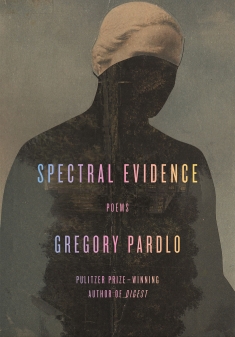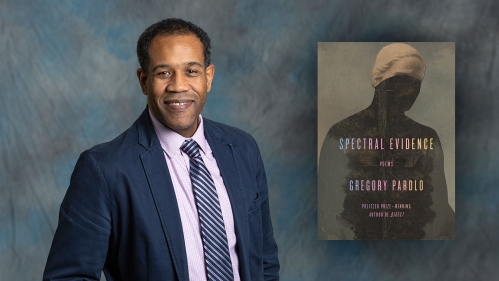Pulitzer Prize-winning poet reflects on the power and importance of provocative storytelling by Black writers

As he was working on his new anthology of poetry, Spectral Evidence, Gregory Pardlo reflected on race relations in the United States. He was struck by the 2014 killing of Michael Brown in Ferguson, Missouri and the dynamics of the confrontation between Brown and Darren Wilson, a police officer. Wilson testified before a grand jury that he had been afraid for his life and referred to Brown as a demon, even though they were about the same size and Brown was unarmed.
“I had been reading about ‘monster theory’—the ways, as a society, we produce the monsters we need—and I kept returning to the question of why he needed Michael Brown to be a monster,” said Pardlo, an associate professor in the Department of English and Communication at Rutgers University–Camden and co-director of the Institute for the Study of Global Racial Justice at Rutgers University. He won the Pulitzer Prize for Poetry in 2015 for the collection Digest.
“The tension running through this book is the push and pull between not wanting to face the horror and emotional devastation of what happened in Ferguson and the intellectual need to understand it," Pardlo said. "As James Baldwin once said: ‘Not everything that is faced can be changed, but nothing can be changed until it is faced.’”
For Pardlo—and the larger Black community—the power of language and the written word is uniquely important in sharing the truth of Black history. For centuries, anti-literacy laws were enacted to uphold the institution of slavery and, after the Civil War, maintain white supremacy.
“I’ve long had a fascination with the written word, because there is a lingering sense that my community has been prohibited or prevented from indulging in it. Therefore, having a prowess of language is subversive, liberatory, and affirming,” Pardlo said.
Throughout American history, great artists and intellectuals have used language in just these ways – from the subversive to the affirming – to tell the stories and journey of Black America. From the personal narratives of Fredrick Douglas and Harriet Jacobs to the lyrical poems of Langston Hughes and Gwendolyn Brooks, Black artists have used the written word to share a spectrum of experiences with the Black community and beyond.
“It’s so easy to forget how constructed our reality is,” Pardlo said. “Stories remind us that people experience the world in different ways, and stories told by marginalized writers allow readers to experience the world from diverse perspectives.”
The goal of the writer, Pardlo emphasized, is to provoke the reader into making better choices about how they interact with others and the world. Black writers are essential catalysts to that provocation, a necessary part of leading America toward a more inclusive, representative, and honest future.
“If we don't analyze and critique what we've been told, whatever story we construct will perpetuate the inequalities we've experienced," Pardlo said. “To write from a place of empowerment, a Black writer has to revisit and point out the historical lies we’ve been told.”



